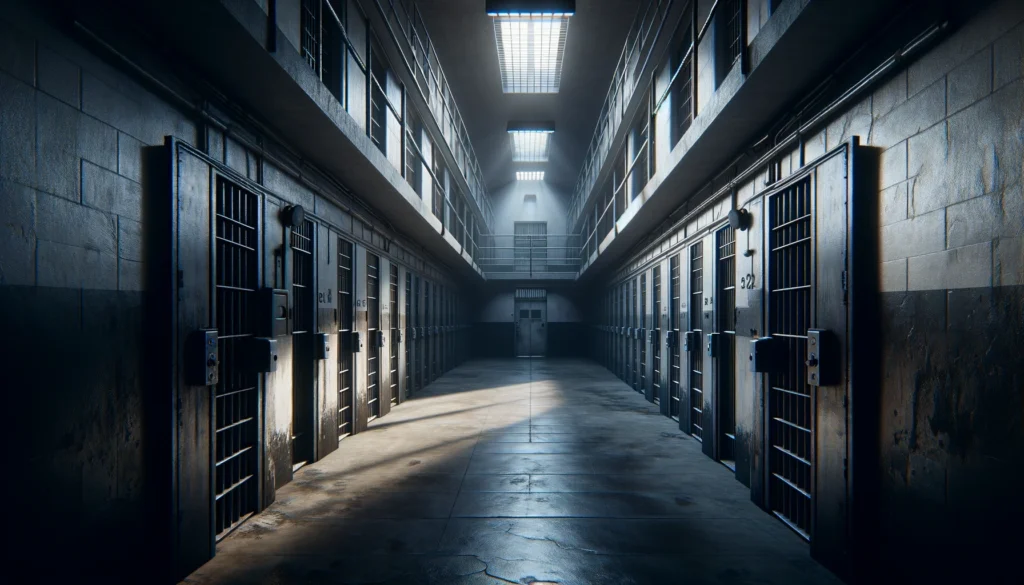
Unveiling the Crisis: DOJ Exposes Unconstitutional Conditions in Mississippi Prisons
By Darius Spearman (africanelements)
Support African Elements at patreon.com/africanelements and hear recent news in a single playlist, plus get early access to ad-free video content.
Introduction to Mississippi’s Prison Crisis and Reform Efforts
The Justice Department has uncovered alarming conditions in Mississippi’s prisons. These findings spotlight the urgent need for “mississippi prison reform” (NewsOne). Issues range from violence to understaffing, signaling a deep constitutional crisis. The situation at “parchman prison conditions” serves as a grim example of the broader systemic failures.
Efforts to address these violations are now critical. The report from the DOJ emphasizes the dire need for improvement (NewsOne). As we move forward, understanding the depth of these issues is vital for enacting meaningful reform. Moreover, the state’s response will be pivotal in reshaping the future of its prison system.
DOJ’s Findings on Unconstitutional Conditions in Mississippi Prisons
The Department of Justice’s report unveils troubling conditions within Mississippi’s prisons, highlighting violations of “inmate rights” and a severe “prison staffing crisis” (NewsOne). These revelations underscore the critical need for systemic “mississippi prison reform.” The report’s insights into “prison violence and understaffing” paint a stark picture of the challenges ahead (ProPublica).
“The DOJ’s findings highlighted ‘systemic’ issues within the state’s prison system, emphasizing the necessity for significant improvements to meet constitutional standards.” (NewsOne)
Furthermore, the DOJ’s findings on “gang control in prisons” exacerbating violence and disorder necessitate immediate action (Reuters). It’s a pivotal moment that demands a comprehensive approach to reform, ensuring the protection and rights of inmates are front and center. Thus, the journey towards rectifying these wrongs is daunting but necessary, shining a light on the path to a more just and humane correctional system.
The Impact of Gang Control and Violence in Correctional Facilities
Gangs hold a powerful grip on Mississippi’s prisons, leading to unchecked violence and fear (ProPublica). Their control magnifies the “prison violence and understaffing” crisis. Efforts to combat this influence face significant hurdles. Additionally, as gangs fill the power vacuum, safety for inmates and staff plummets. This situation urgently calls for effective measures to dismantle gang dominance and restore order.
The violence within these walls not only endangers lives but also hinders any progress toward “mississippi prison reform” (Reuters). Consequently, incidents of brutal attacks underscore the need for a new strategy. Addressing this chaos is crucial for any hope of reform. The state must prioritize inmate safety and rehabilitation over punitive measures. Only then can Mississippi’s prisons escape the cycle of violence and begin the journey toward true correctional reform.
Addressing Mental Health and Suicide Prevention Failures in Prisons
Mississippi’s prisons face critical challenges in addressing “prison mental health care” and “suicide prevention in prisons” (NewsOne). The DOJ’s findings reveal a stark lack of resources and support for inmates struggling with mental health issues. This neglect not only violates “constitutional rights of inmates” but also exacerbates the cycle of violence and despair within prison walls.
Critically, failure to provide adequate mental health services and implement effective suicide prevention measures has had tragic consequences (Reuters). Reports of suicides within these facilities underscore the urgency for reform. Addressing these failures is paramount for ensuring the safety and well-being of inmates. Additionally, efforts must focus on comprehensive care and preventive strategies to mitigate these risks and foster a more humane correctional environment.
Implementing Steps Towards Comprehensive Mississippi Prison Reform
Mississippi must take decisive action to reform its prisons, focusing on improving “prison staffing” and addressing “solitary confinement issues.” The DOJ’s call for reform underscores the urgency of these steps. By enhancing staffing levels, the state can better supervise inmates and reduce violence. Moreover, revisiting the use of solitary confinement can improve mental health outcomes for inmates. These reforms are crucial for ensuring the safety and dignity of all within the system.
“Assistant Attorney General Kristen Clarke of the Justice Department’s Civil Rights Division stressed the importance of addressing these ‘severe problems’ to protect the civil rights of all Americans.” (NewsOne)
Furthermore, embracing “mississippi prison reform” requires a comprehensive approach that includes better mental health care and violence prevention strategies. Legislative action, increased funding, and oversight are essential to drive these reforms forward. Collaborating with civil rights organizations can also provide valuable insights into effective reform strategies. In summary, these efforts can pave the way for a more humane, safe, and constitutional correctional system in Mississippi.
About the author:
Darius Spearman is a professor of Black Studies at San Diego City College, where he has been pursuing his love of teaching since 2007. He is the author of several books, including Between The Color Lines: A History of African Americans on the California Frontier Through 1890. You can visit Darius online at africanelements.org.
Share on FacebookTweetFollow us
